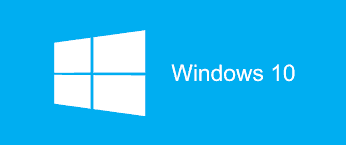
Common Sense Password Practices
With all the online hacks and security breaches going on these days, I would like to share a few pointers on what goes into a good strong password.
- Complexity: In general I recommend a password that is at least 8 characters, contains a number, an uppercase letter, and a special character such as ! or @ if allowed. Although common words and names are easy to remember, you want to avoid these and go with a sequence of characters that are more random and obscure. If you insist on using common words and names for memorability, try replacing letters in the word or name with numbers or special symbols. For example, you could take the word list and turn it into 1i$t.

Google Chrome Ends Support for Windows Vista and XP in April 2016
Google will stop releasing updates for its Chrome web browser running on the Windows XP and Vista operating system starting April 2016. Although Microsoft will continue to support and update Windows Vista through April 11, 2017, Google has decided to abandon Chrome support under Vista a year early, focusing its development efforts on more current versions of Windows.
You may continue to use Google Chrome on these platforms after the end of support date, however Chrome will longer receive updates and security fixes and could become more vulnerable to hacks and malware infection over time. The best recommendation is to move to a newer version of Windows, or if you would like to keep your Windows Vista operating system, switch to using Mozilla Firefox as your web browser, as it is still supported under Vista at this time.
Please feel free to contact me with any questions or concerns about transitioning from Google Chrome to Mozilla Firefox, or to a new version of Windows.
Mozilla Firefox Download Page: https://www.mozilla.org/en-US/firefox/new/
~Ted Eiler

Should I Install the Windows 10 Upgrade?
While features such as the return of the Windows start menu and the Cortana personal assistant sound great, upgrading your Windows 7 or 8 machine to Windows 10 may not be the best idea at this time.
I have received a number of phone calls recently from people who performed the free Windows 10 upgrade and ran into all kinds of problems, including system freezes and lockups and in some cases Windows became completely non bootable.
Microsoft does give you a 30 day window of time to decide whether of not you want to keep Windows 10, and if not, you can roll back to the previous version of Windows you had. In many cases however the rollback feature can fail to run correctly, requiring a backup and clean re-installation of the original operating system and all programs.
In general I recommend waiting at least a good six months before jumping into a major new version of Windows, as a lot of major bugs and issues tend to surface early in its release which will be addressed over time with updates and Service Packs.
~Ted Eiler

Goldman Sachs | Podcast: Artificial Intelligence – The Next Wave of Disruption
George Lee, chief information officer for the Investment Banking Division at Goldman Sachs discusses in a podcast recorded on March 4, 2015 the ever increasing role of artificial intelligence in our everyday lives. Lee defines artificial intelligence as, “An attempt to simulate human level cognition, recognition, and even reasoning at some level in computing and with algorithms.”
Whether its intelligent online search prediction and marketing, machine automation such as self driving cars, or process optimization going on across every industry, artificial intelligence is aiding us to gain a better understanding about complex systems and to make better decisions.
Artificial intelligence is now being integrated with very large data sets known today as ‘big data’ to expand into new frontiers of knowledge and technological possibilities.
~Ted Eiler

The Importance of Keeping Flash and Java Updated
The Adobe Flash Player and Java Runtime Environment commonly running on many computers today are notorious targets for hackers looking for an entryway into your system. These are two third-party programs that are used heavily on the web and run on multiple operating systems, and as such exploits discovered in them can be leveraged on many computers across different platforms.
Flash and Java is frequently updated to patch newly discovered security holes and vulnerabilities, so it is important to keep them up to date to improve your security while online. Read more…






















